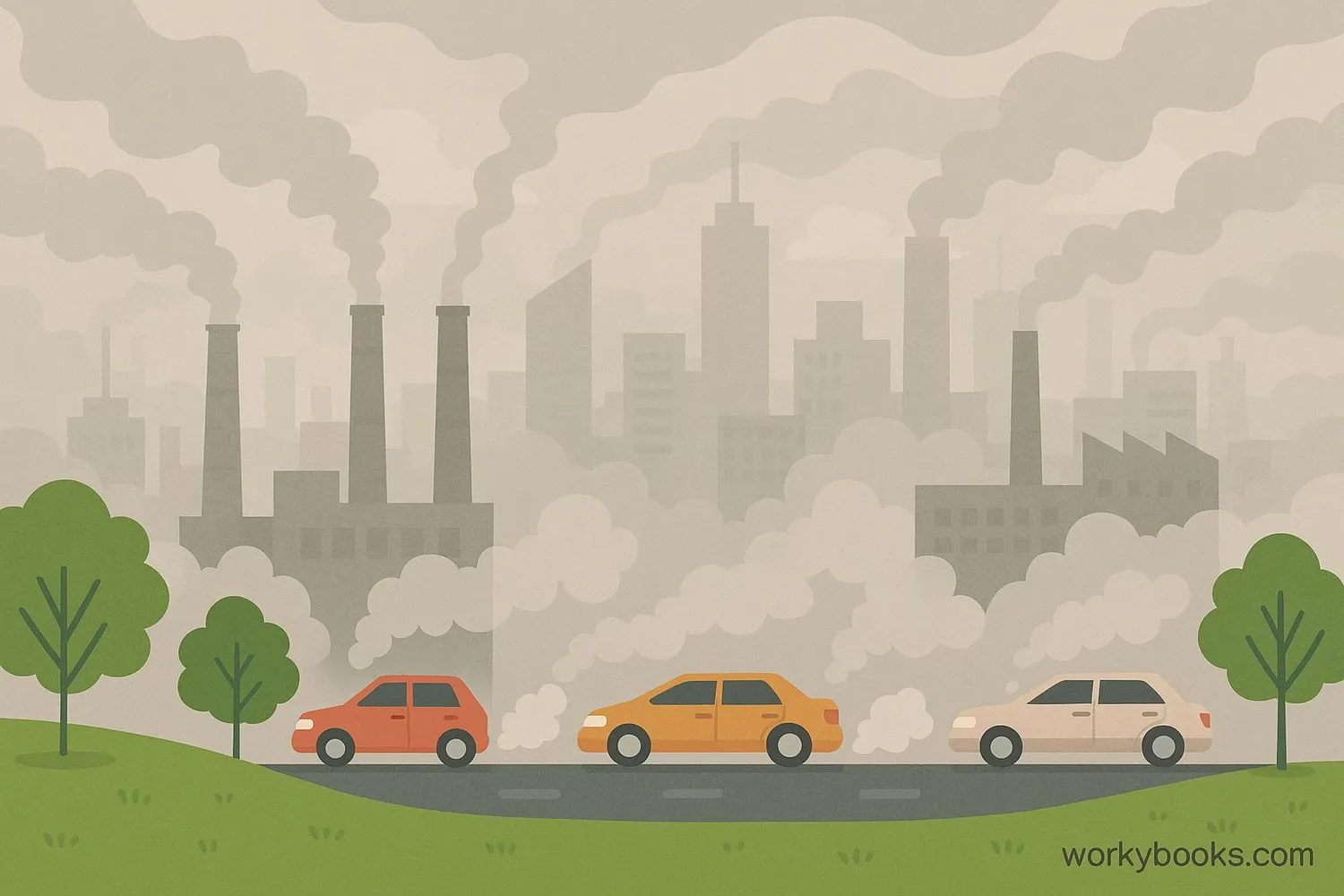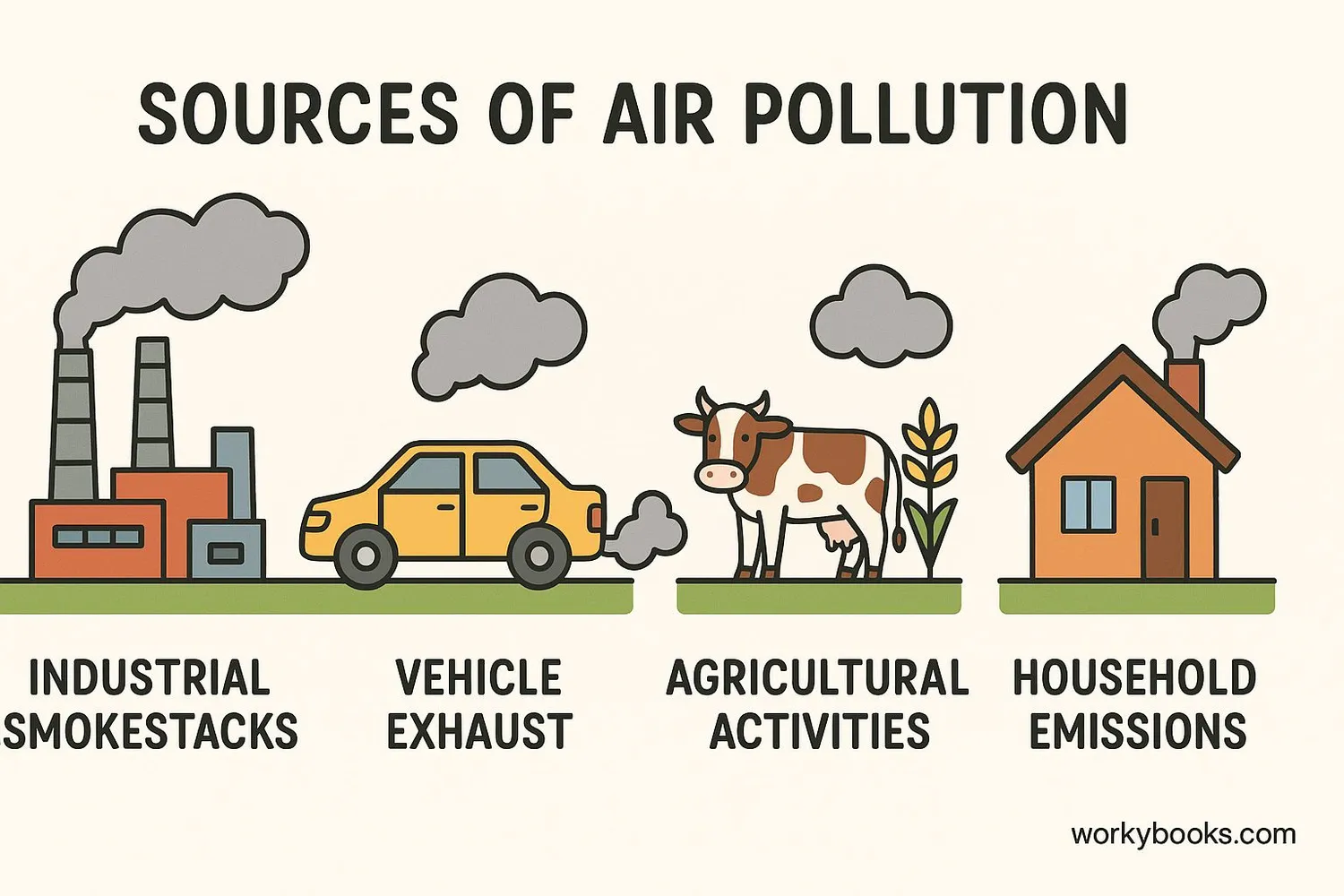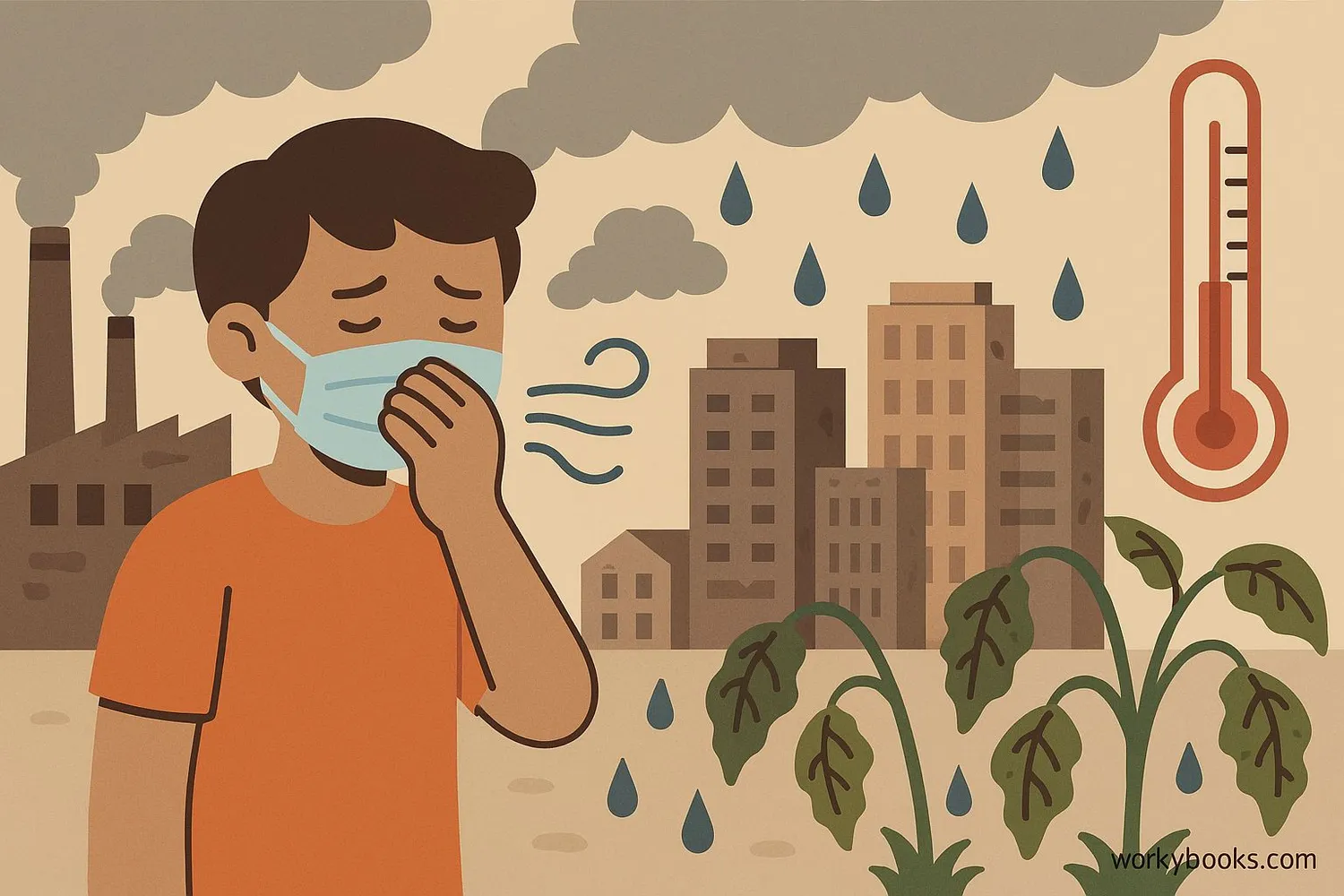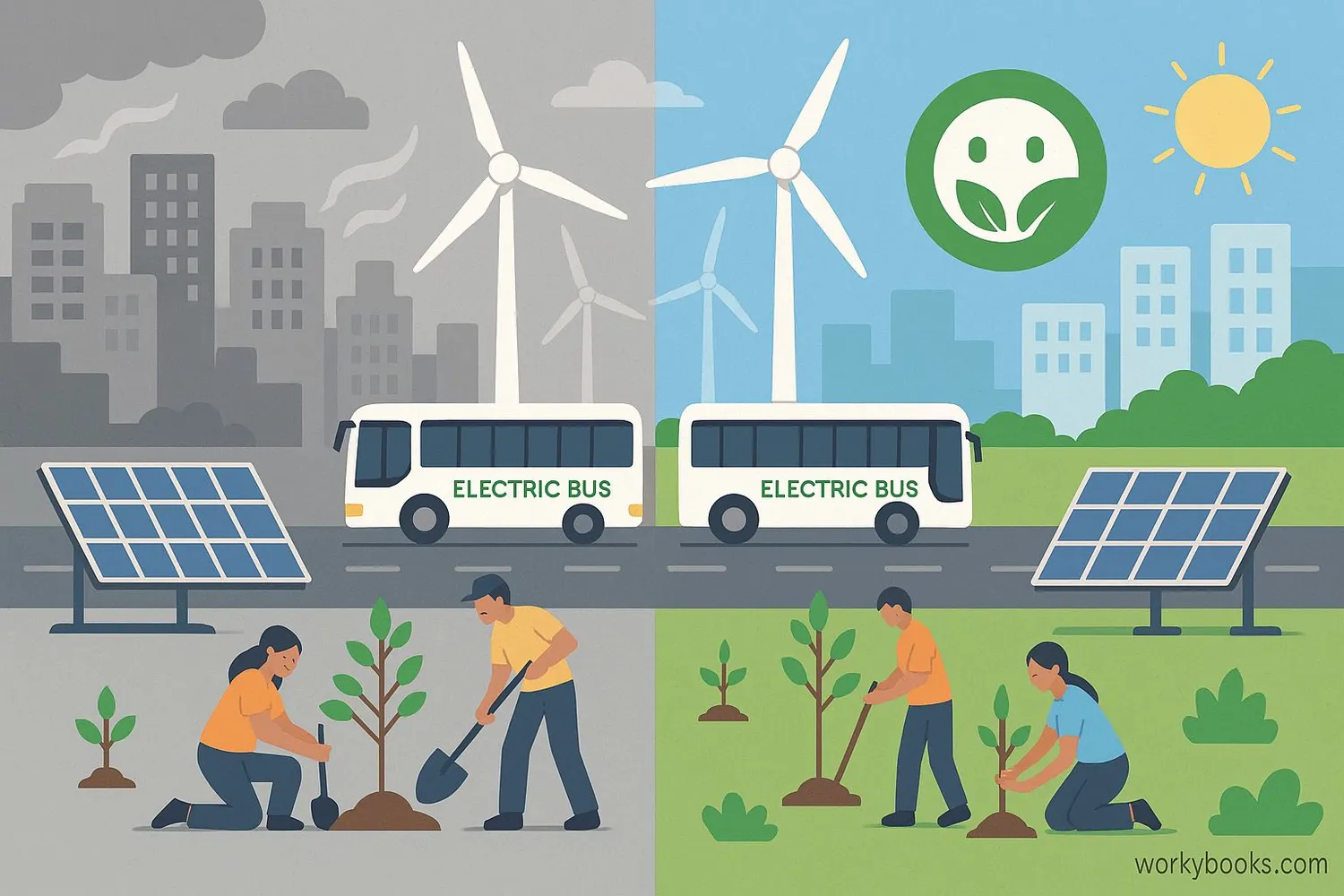Air Pollution - Definition, Examples, Quiz, FAQ, Trivia
Discover how air pollution affects our planet and what we can do to keep our air clean!
What is Air Pollution?

Air pollution is when harmful substances contaminate the air we breathe. These pollutants can come from natural sources like volcanoes and wildfires, but most air pollution today comes from human activities. Air pollution is sometimes called atmospheric contamination.
Think of the air like a clear glass of water. When we add things that don't belong there - like smoke, chemicals, or dust - it becomes dirty and unsafe. The main types of air pollution include:
Particulate Matter
Tiny particles of dust, dirt, soot, and smoke (PM2.5 is especially dangerous)
Greenhouse Gases
Gases like carbon dioxide that trap heat and warm the planet
Ground-Level Ozone
Formed when pollution reacts with sunlight (main ingredient of smog)
Air Quality Index (AQI)
The AQI is a scale from 0 to 500 that tells us how clean or polluted our air is. Green (0-50) is good air quality, while maroon (301-500) is hazardous.
Sources of Air Pollution

Air pollution comes from many different sources. Understanding where pollution comes from helps us find solutions to reduce it. The main emission sources include:
Industrial Activities
Factories and power plants that burn fossil fuels release pollutants like sulfur dioxide, nitrogen oxides, and particulate matter.
Transportation
Cars, trucks, airplanes, and ships burn gasoline and diesel, producing carbon monoxide, nitrogen dioxide, and other pollutants.
Agriculture
Farming activities release ammonia from fertilizers and methane from livestock, contributing to pollution and greenhouse gases.
Household Sources
Heating systems, cooking stoves, and certain cleaning products release pollutants indoors and outdoors.
Smog Formation
Smog is created when sunlight reacts with pollutants like nitrogen oxides and volatile organic compounds. The word "smog" combines "smoke" and "fog".
Effects of Air Pollution

Air pollution affects our health, our environment, and even our buildings and monuments. Understanding these effects helps us appreciate why clean air is so important.
Human Health
Air pollution causes respiratory diseases like asthma and bronchitis, and can lead to heart problems.
Environment
Acid rain damages forests and aquatic life, while ozone pollution harms plants and crops.
Climate Change
Greenhouse gases trap heat, causing global warming and extreme weather patterns.
Buildings
Pollution damages buildings, monuments, and statues through chemical reactions.
Health Impacts
According to the World Health Organization, air pollution causes about 7 million premature deaths worldwide every year. Children and the elderly are especially vulnerable.
Solutions to Air Pollution

The good news is that we have solutions to reduce air pollution! Through pollution control technologies and environmental regulations like the Clean Air Act, we can improve air quality.
Clean Energy
Switching to renewable energy sources like solar and wind power reduces pollution from power plants.
Transportation
Electric vehicles, public transportation, biking, and walking reduce vehicle emissions.
Green Spaces
Trees absorb pollutants and produce oxygen - planting trees helps clean our air!
Important environmental regulations:
The Clean Air Act is a U.S. law that regulates air emissions from stationary and mobile sources. Since it was passed in 1970, it has prevented hundreds of thousands of cases of respiratory illness and saved millions of lives.
International agreements like the Paris Agreement help countries work together to reduce greenhouse gas emissions globally.
Air Pollution Quiz
Test your air pollution knowledge with this quiz! Answer all 5 questions to see how much you've learned.
Frequently Asked Questions
Here are answers to some common questions about air pollution:
Air Pollution Facts
Discover some interesting facts about air pollution:
Tiny Particles, Big Problems
PM2.5 particles are so small that 30 of them side-by-side would equal the width of a human hair! These tiny particles can enter your bloodstream and affect your entire body.
The Great Smog of London
In 1952, London experienced a severe air pollution event that lasted 5 days. The "Great Smog" caused thousands of deaths and led to the first modern clean air laws.
Economic Costs
Air pollution costs the global economy more than $5 trillion every year in welfare costs and contributes to healthcare expenses and lost productivity.
Nature's Air Filters
A single mature tree can absorb up to 48 pounds of carbon dioxide per year and filter many pollutants from the air. Urban forests are vital for clean air in cities!





